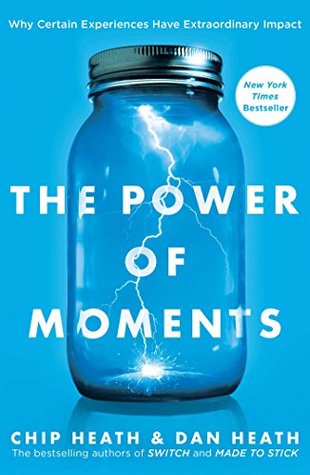More on this book
Community
Kindle Notes & Highlights
by
Chip Heath
Read between
December 3, 2019 - January 8, 2020
When people assess an experience, they tend to forget or ignore its length—a phenomenon called “duration neglect.” Instead, they seem to rate the experience based on two key moments: (1) the best or worst moment, known as the “peak”; and (2) the ending. Psychologists call it the “peak-end rule.”
Moments of elevation are experiences that rise above the everyday. Times to be savored. Moments that make us feel engaged, joyful, amazed, motivated. They are peaks.
To elevate a moment, do three things: First, boost sensory appeal. Second, raise the stakes. Third, break the script. (Breaking the script means to violate expectations about an experience—the
To stretch is to place ourselves in situations that expose us to the risk of failure. What may be counterintuitive is that self-insight rarely comes from staying in our heads. Research suggests that reflecting or ruminating on our thoughts and feelings is an ineffective way to achieve true understanding. Studying our own behavior is more fruitful.
I love this definition...To stretch is to place ourselves in situations that expose us to the risk of failure.


